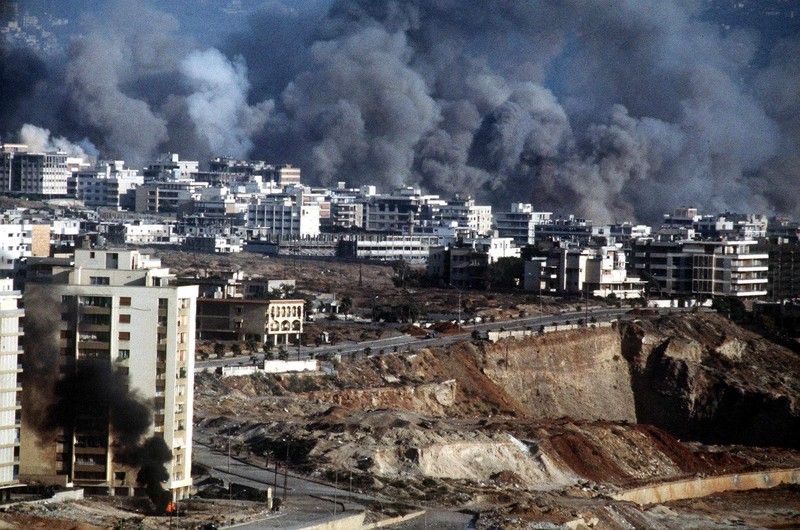Learn about the history of the Palestinian struggle for freedom, equality and justice by exploring major events in the history of their oppression on this day of the year.
24 September
 ZIONIST LEADER REJECTS LIMITS ON ISRAEL'S BORDERS
ZIONIST LEADER REJECTS LIMITS ON ISRAEL'S BORDERS
On this day in 1971, Israeli Prime Minister Golda Meir addressed new Soviet immigrants to Israel at a rally in the Syrian Golan Heights: "The borders are determined by where Jews live, not where there is a line on a map." She was only repeating the Zionist doctrine of expansion through war, explained by many, including Ben Gurion: “But now the issue at hand is conquest, not self-defence. As for setting the borders - it's an open-ended matter.”
زعيم صهيوني يرفض القيود على حدود إسرائيل
سبتمبر24
في مثل هذا اليوم من عام 1971، خاطبت رئيسة الوزراء الإسرائيلية غولدا مائير المهاجرين السوفييت الجدد إلى إسرائيل في تجمع حاشد في مرتفعات الجولان السورية: " يتم تثبيت الحدود حيث يعيش اليهود، وليس حسب خط على الخريطة". كانت غولدا مائير تكرر فقط شعار الصهيونية للتوسع من خلال الحرب، كما يوضحه الكثيرون، بمن فيهم بن غوريون: "لكن القضية المطروحة الآن هي الغزو، وليس الدفاع عن النفس. أما تعيين الحدود فهي مسألة مفتوحة".
Moshe Dayan insists Zionist principles reject any "moral aspect"
Prime Minister Golda Meir addressed new Soviet immigrants on the Golan Heights in September 1971: "the borders are determined by where Jews live, not where there is a line on a map." Minister of Defense Moshe Dayan emphasized that Israeli rule over the territories is "permanent": "the settlements are forever, and the future borders will include these settlements as part of Israel." Dayan's advice was that Israel should tell the Palestinian refugees in the territories "that we have no solution, that you shall continue to live like dogs, and whoever wants to can leave -- and we will see where this process leads... In five years we may have 200,000 less people -- and that is a matter of enormous importance."
Shimon Peres objected to the advice that Israel become "like Rhodesia," arguing that Israel's international image and prospects for immigration would be harmed. Dayan responded that any "moral aspect" is contrary to Zionist principles. Dayan's 200,000 would be in addition to the 200,000 shepherded across the Allenby Bridge to Jordan by Labor dove Haim Herzog, commander of the conquered West Bank after the 1967 war -- "willingly," he adds, as proven by documents with their fingerprints; many "agreeing" after being kicked and clubbed with rifle butts by paratroopers and border guards, then fleeing in panic to Jordan, according to the soldier who spent four months placing their "willing" prints on the documents at the Bridge where Herzog's buses deposited them.
In September 1967, Shimon Peres presented a settlement plan based on the principle that "Israel's new map will be determined by its policies of settlement and new land-taking." He therefore called for "urgent efforts" to establish settlements not only in East Jerusalem, but also "to the north, south and east," including Hebron, Gush-Etzion, etc.; the Jordan valley; "the central region of the mountains of Nablus"; the Golan Heights, the El-Arish region in the Sinai and the Red Sea access.44 The policies adopted were even more extreme, including the expulsion of thousands of Beduins into the desert, their homes, mosques and graveyards destroyed to clear the lands for the all-Jewish city of Yamit in northeastern Sinai, steps that led directly to the 1973 war.
Ben Gurion insists Zionist principles include theft and pillage
in 1948, David Ben-Gurion asserted the same Zionist commitment to aggression, conquest and indifference to the suffering of the native Palestinians: “The war will give us the land. The concepts of ‘ours’ and ‘not ours’ are peace concepts, only, and in war they lose their meaning.”
